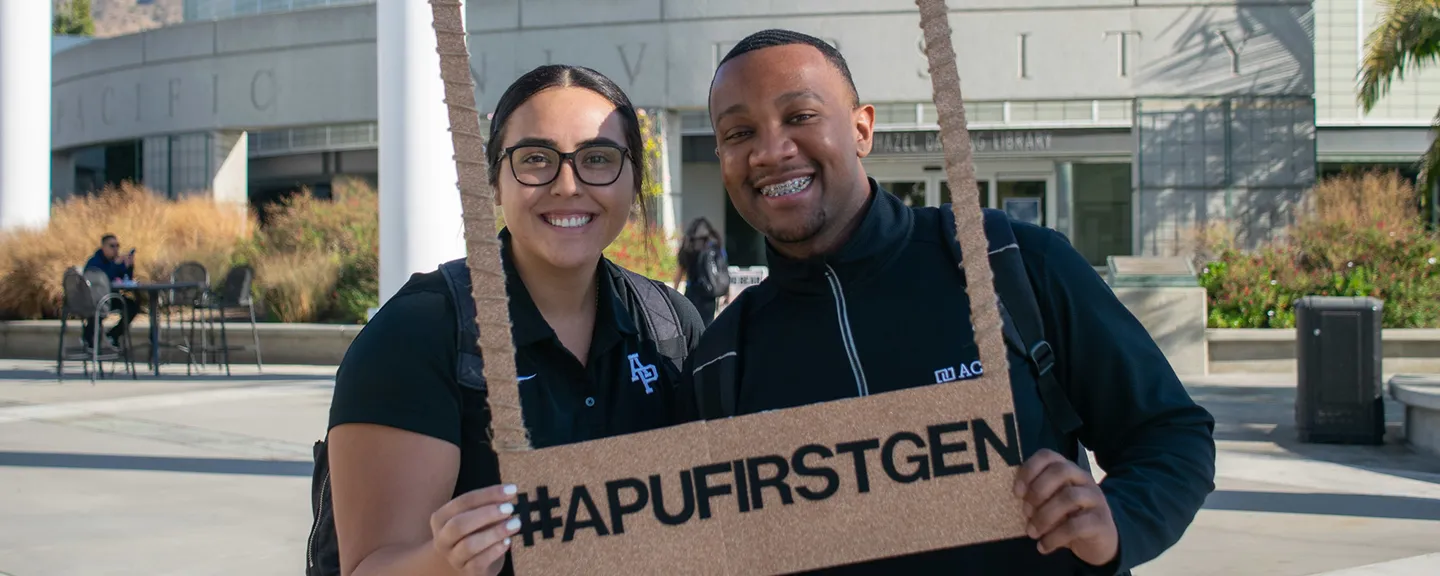- Home
- >
- APU Articles
- >
- News Article
6 College Success Strategies for First-Generation Students
November 19, 2020 | Written By Ana Felce

For the best experience possible, check out these six strategies to help you succeed—from the application process all the way through your first year.
1. Visit Campuses When Choosing Where to Apply
Online resources are a great starting point for gathering information when applying to colleges. But once you’ve narrowed down your top choices, consider visiting their campuses to get a feel for each environment. Once on campus, you can interact with current students, explore the facilities, and even set up meetings with counselors and department heads to learn more from those who know the college best. Visiting the campus is an opportunity to see what the college is really like in person, and you may discover that it feels so much like home that you can’t picture yourself anywhere else. If visiting campus in person isn’t an option, see if the college you're interested in has an online campus tour or virtual events to help you connect and ask questions.
2. Meet with an Admissions Representative
Contact the admissions team when you make your appointment to visit campus and take advantage of that time to chat with an admissions representative. Or chat with your admissions representative online. A representative can help address any questions your family might not be able to answer. They can even point out tips and tricks for applying that are especially helpful for first-generation students.
3. Explore a Variety of Course Options
Whether you’ve always known what you wanted to study or you’re still deciding, your first year of college is a good time to try out a variety of courses. Taking electives allows you to explore new topics and develop knowledge that will make you a more well-rounded person. And if you’re still undecided, taking courses from areas that interest you can help you choose your major.
4. Reach Out to Professors and Mentors
To set yourself up for college success, you need to be willing to ask questions—and ask for help when you need it. It’s a good idea to reach out to your professors at the beginning of the semester and begin to form a relationship. When you have questions or want to review lecture material, visit them during their office hours. The important thing is to seek help as soon as you need it, so you can build your knowledge base for more advanced material as the semester continues.
5. Seek Out Resources for First-Generation Students
University staff and faculty are there to help answer your questions and navigate the college experience. Cassandra Gonzalez, first-generation coordinator at Azusa Pacific University’s Academic Success Center, wants students to remember that her office and resources—like APU’s GEN1 Scholars Program—are there to help first-generation students.
“No one is meant to go through this journey alone and if they can’t find their support at home, then they need to find it on campus,” Gonzalez said.
6. Get Involved on Campus
Your time at college is a chance to learn both in and out of the classroom and discover more about you and your interests. If you practice a sport or are part of a club in high school that you really enjoy, you can continue to participate in college or you can branch out and try something completely new!
With so many ways to get involved on campus, you’re bound to find something that interests you. Not only could this lead you to discover new passions, but you might also end up finding a group of like-minded friends.
Curious to learn more about succeeding in college as a first-generation student? Check out the many ways APU’s Academic Success Center is helping students succeed every day.